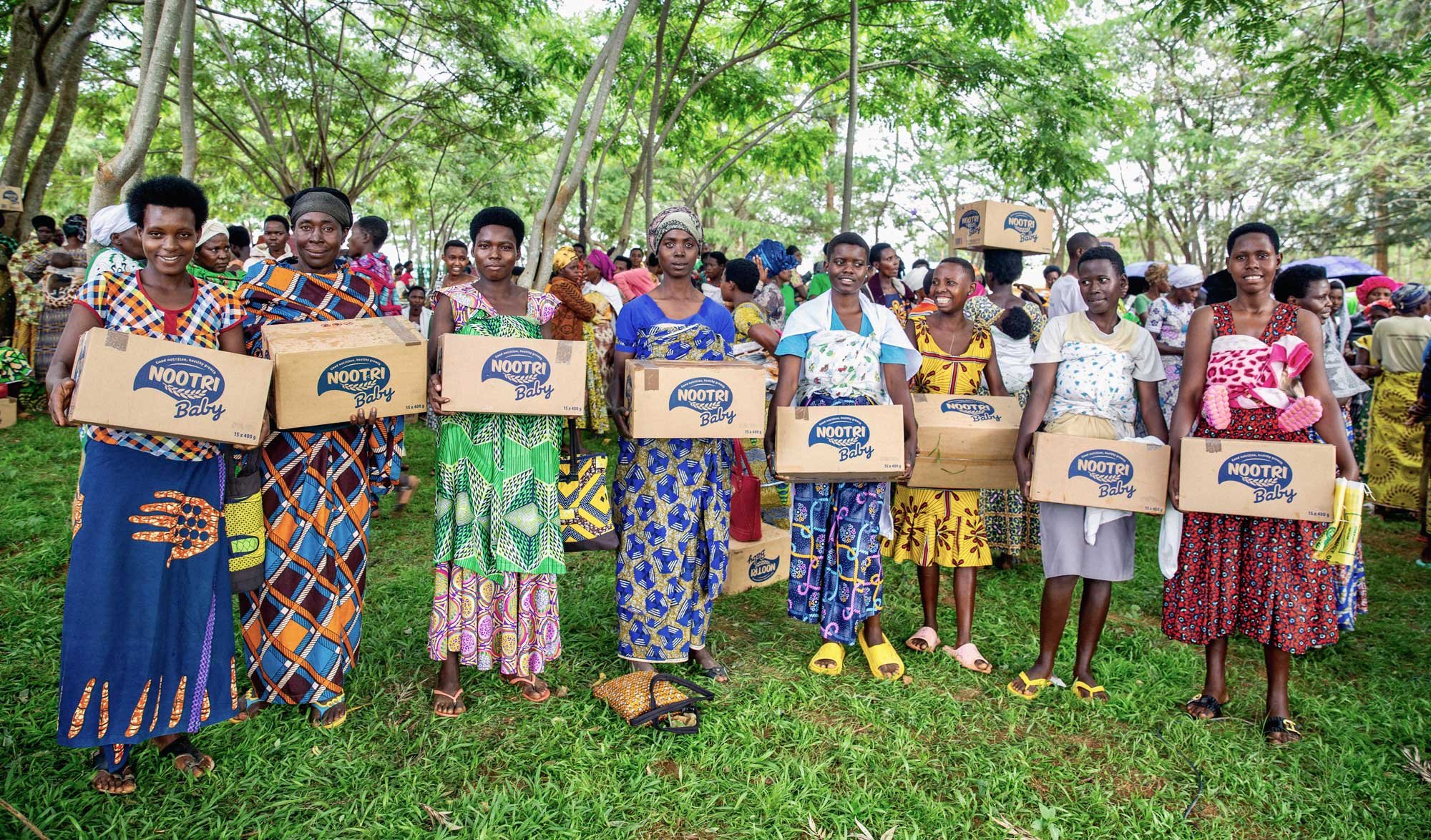
Africa
Improved
Foods
One of our projects to address hunger and malnutrition is Africa Improved Foods (AIF). AIF proves that (hidden) hunger can be addressed in a sustainable, profitable and scalable model. Creating an autonomous food supply chain in a public-private partnership, AIF is a social enterprise making nutritious fortified foods in Africa, for Africa.
AIF is an impact-driven African food champion addressing hunger and malnutrition by building resilient and sustainable food systems, offering consumers nutritious, affordable and accessible products. Africa Improved Foods also addresses stunting and malnutrition through partnerships with nonprofit institutions, such as UN WFP and governments in Africa. Long-term contracts are in place to serve the beneficiaries of the WFP across Africa, as well as the Government of Rwanda. AIF’s mission is to be the best-in-class provider of safe, nutritious and affordable food, impacting over 10 million lives daily in Africa by the end of 2028.
The purpose of AIF is to make Africa self-supporting in food production and independent from imported food aid, by working towards locally sourced, locally produced food for the local population. Supporting farmers provide the crops that AIF processes to create healthy, affordable food products. Moreover, the enterprises are also locally owned by smallholder farmers and communities.
Profitable
Africa Improved Foods is a public-private partnership involving DSM/dsm-firmenich, IFC and FMO, with the Government of Rwanda an AIF partner in that country. AIF provides a scalable and sustainable solution to malnutrition via local production of highly nutritious foods. About $100 million has been invested in Rwanda already in best-in-class technology, operational since December 2016. And it works: since its launch, AIF has grown to $90 million in annual revenues, proving that this model can be profitable.
Impact
AIF launched in 2016 in Rwanda, since when it has contributed $1 billion discounted net incremental benefits (GDP) to the Rwandan economy, created more than 300 direct jobs, sourcing from over 125,000 smallholder farmers. AIF now reaches 1.5 million consumers daily.

Adapt
Act
Impact
Like Darwin, we believe that adaptation is the key to being successful in a changing world. Adaptation in our thinking and behaviour, while being open to paradigm shifts. Our current habitat is under serious pressure. So, the question is: how will we make the change and adapt in time? Collectively as a global society, as companies and as individuals?
